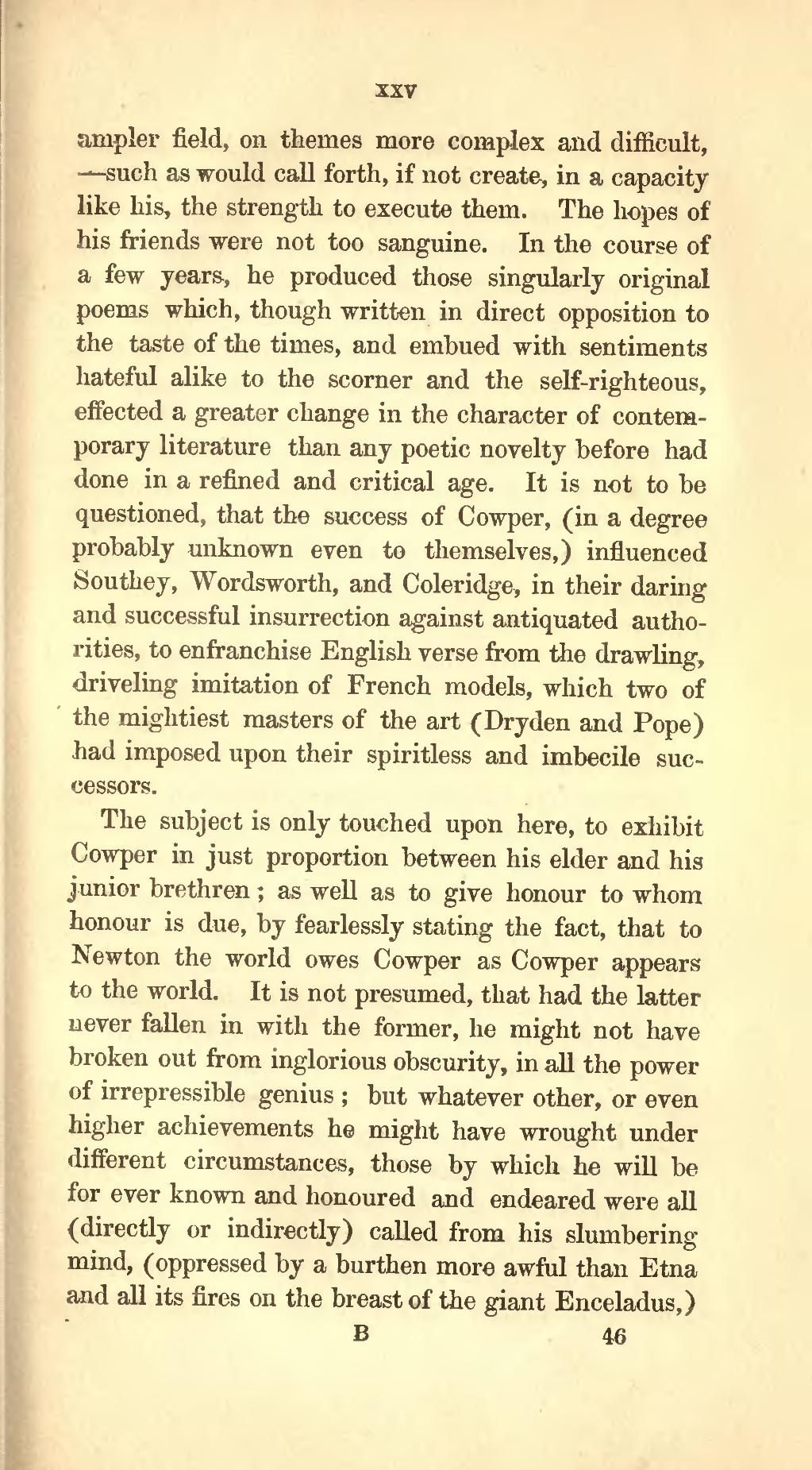ampler field, on themes more complex and difficult, —such as would call forth, if not create, in a capacity like his, the strength to execute them. The hopes of his friends were not too sanguine. In the course of a few years, he produced those singularly original poems which, though written in direct opposition to the taste of the times, and embued with sentiments hateful alike to the scorner and the self-righteous, effected a greater change in the character of contemporary literature than any poetic novelty before had done in a refined and critical age. It is not to be questioned, that the success of Cowper, (in a degree probably unknown even to themselves,) influenced Southey, Wordsworth, and Coleridge, in their daring and successful insurrection against antiquated authorities, to enfranchise English verse from the drawling, driveling imitation of French models, which two of the mightiest masters of the art (Dryden and Pope) had imposed upon their spiritless and imbecile successors.
The subject is only touched upon here, to exhibit Cowper in just proportion between his elder and his junior brethren; as well as to give honour to whom honour is due, by fearlessly stating the fact, that to Newton the world owes Cowper as Cowper appears to the world. It is not presumed, that had the latter never fallen in with the former, he might not have broken out from inglorious obscurity, in all the power of irrepressible genius; but whatever other, or even higher achievements he might have wrought under different circumstances, those by which he will be for ever known and honoured and endeared were all (directly or indirectly) called from his slumbering mind, (oppressed by a burthen more awful than Etna and all its fires on the breast of the giant Enceladus,)
